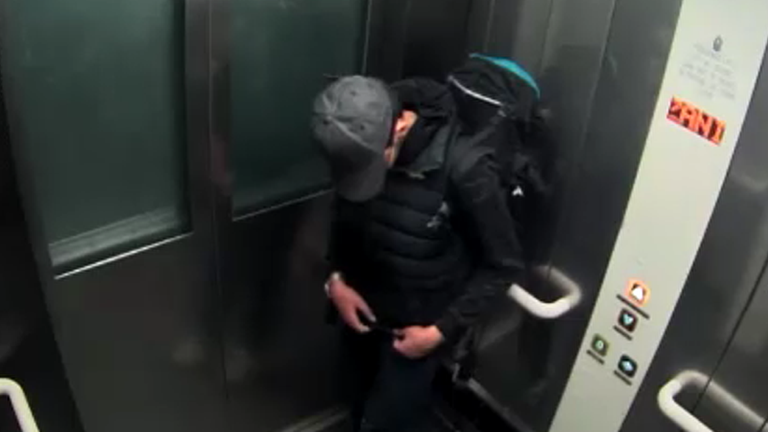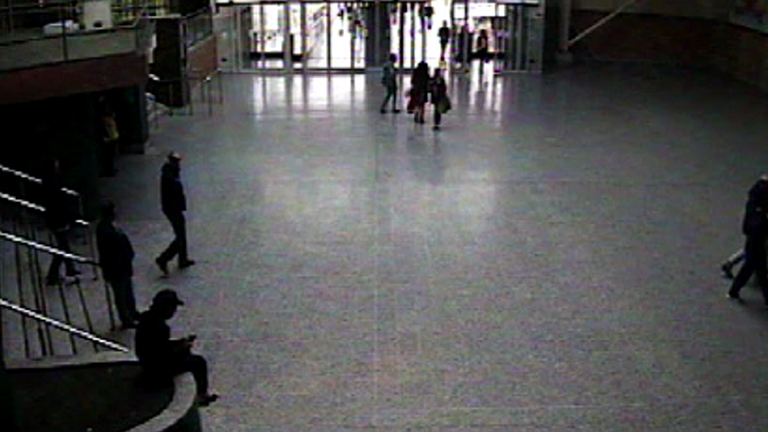The multimillion-pound security company at Manchester Arena had a "wholly unsatisfactory" approach to training their staff, an inquiry has heard.
All three of the security guards who failed to stop the Manchester Arena bomber had skipped through their counter-terrorism training, taking less than 10 minutes each to complete it.
Salman Abedi spoke to one security guard, Robert Atkinson, as he was conducting a reconnaissance mission on 22 May 2017, and later that evening walked past him with a heavy rucksack containing the bomb, the inquiry previously heard.
Another guard, Mohammed Agha, was alerted to Abedi's presence as he waited with his rucksack at the back of the City Room foyer, 15 minutes before the attack.
He informed colleague Kyle Lawler, who was a "radio holder" and tried to call the report in, but took no further action after fearing he might be accused of being racist if he approached Abedi.
All three were teenagers earning slightly above the minimum wage and had to complete their training, unpaid and in their own time, before they could start work for Showsec.
It is one of the largest stewarding and security companies in the country and provides staff for venues including Manchester City's ground and Twickenham stadium, the inquiry was told.
The company, which is Dutch owned, has a turnover of £25m and makes profit if £1.2m after payments to directors.
However, their counter-terrorism training for their 4,000 casual staff was delivered online and no one checked if it was properly completed.
It was largely completed on mobile phones, included two films and was supposed to take at least 45 minutes.
However, Mr Agha completed his in 8 minutes 23 seconds, Mr Lawler in 6 minutes and 31 seconds and Mr Atkinson in 3 minutes and 38 seconds.
The inquiry heard that Showsec were relying on a university to provide the training module which was "hosted" by a company called Marked Improvement.
But it was not until September 2017, four months after the attack, that they monitored how long potential staff took to complete the course.
Mark Harding, the managing director of the company, denies responsibility for stopping the attack.
Duncan Atkinson QC, representing the victims' families, asked: "That part of the training had to be completed before they started, on their own time, unpaid and with no checks done as to how much attention they paid to any of it. That, would you agree, was wholly unsatisfactory?"
Mr Harding said: "I don't agree. In terms of recruitment, we could have spent thousands and thousands and thousands of pounds recruiting and training people who never worked for us and we had to find a reasonable solution."
The module told those who followed it: "Your vigilance is essential to ensuring protective measures are kept.
"Stewards will know their work areas very well and therefore may be better identifiers of risk than their supervisors.
"You should understand the importance of reporting even if it is a false alarm."
Nick de la Poer QC, for the inquiry, said experts considered there was, "insufficient interaction as part of the training because it was all online".
Mr Harding said: "The system does not just create and impart information, it is a learning platform.
"I believe it was created as foundation for our staff to go on and learn. I believe it has harnessed information in a good way for learners to understand."
After the attacks on the Bataclan concert venue in November 2015, Showsec sent out an "e-shot" to tell staff: "Please remember the counter-terrorism module is always open if you wish to refresh the e-learning within it."
It was sent to 3,800 staff but only 2,635 opened the email and only 139 clicked on the link to the learning, less than 3% of the total.
Mr Harding said the "penetrative power of the communications" was demonstrated by the fact that 60% had opened it and added: "I think that is fairly impressive."
The comments came as Figen Murray, the mother of victim Martyn Hett, told the inquiry the "stakes are too high" for the government to delay a new law that would force crowded venues to take security seriously.
She said a consultation over the legislation, known as Martyn's Law, had been shelved during the coronavirus outbreak but was now more essential after recent attacks in France and Austria.
"The stakes are now pretty high with the terror level lifted to 'severe' and I would really like the government to get on with the consultation and not delay it any further," she said.
"It is just too important to keep the nation safe. Once we are out of covid-19 we don't know what is going to happen. The stakes are too high."





